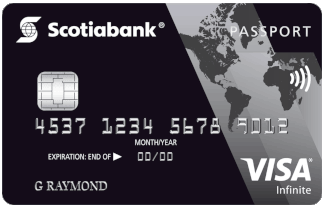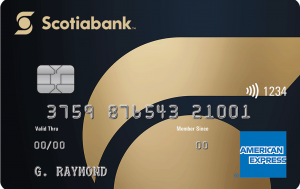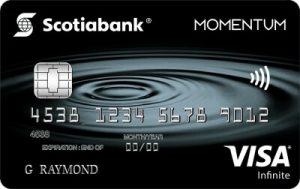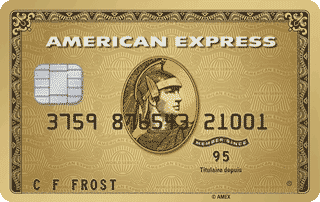If you had trips planned in March and April, your flights were probably canceled due to the coronavirus. If not, you want to cancel them yourself. Here is concretely what you can do depending on your situation: the specific steps to follow to obtain a full refund (which is the best option for you and is still possible in several cases), or to obtain a travel credit in certain cases (unfortunately).
Unlike in the United States and the European Union, Canadian airlines have the “right” (for now at least) to only give out travel credits instead of refunds (and therefore force you to be in the business of making interest-free loans to mega-corporations that are worth billions of dollars and that will probably be getting taxpayer bailouts too), because of the Canadian Transportation Agency (CTA) non-binding “decision”.
But there is a trick that allows you to be reimbursed by a Canadian airline anyway if your flight was going to the European Union or the United States.
And if not, the CTA story is probably not over yet… maybe there will even be class actions or other ways to possibly allow you to get a better outcome if you want one (subscribe for free to stay up to date with everything that is happening).
This article lays out the main actions you can take as of today and we are monitoring the situation which is changing constantly for anything new.
Let’s just remember one important thing: if your situation does not entitle you to a full refund, there is no point in canceling now if your flight is further away. You’re better off waiting as long as you can, as airline change policies are only likely to be more in your favor by being patient.
This article is for flights only, we’ll cover hotels and other travel expenses in another one.
Let’s dive in.
Basic Steps For All Trips
So to get started, here is the first thing to do:
- Check if you have free trip cancellation insurance with your credit card
- Check if you have cancellation insurance otherwise (employer, standalone policy, an extra at time of purchase)
Almost all trip cancellation insurance will cover travelers when a government travel advisory is issued, as is the case with the coronavirus. This is just one of the reasons why it is vital to pay for any flight with a good travel credit card.
On the other hand, even if you do have cancellation insurance, getting reimbursed is not as simple as with other types of great credit card insurance (flight delay, car rental, etc.), notably because of those travel credits: most insurers ask that you try with the airline first.
So here are the steps if you do have cancellation insurance:
- Check if the insurance reimburses without having to call the airline
- Check if the insurance can give you money if the company only offers a credit
- Check if the insurance can give you money after the credit expires if you haven’t used it
This is because some (rare) insurance policies will simply reimburse you, others will not reimburse you if the company offers credit, but others will reimburse you if your credit expires and you haven’t used it.
In the latter case, get the confirmation in writing, so you can at least have the option of not using the credit if it’s not advantageous for you and you prefer to have the money back once the credit expires. But several insurance companies have tightened their policies during this crisis, hence the importance of double-checking.
I wrote a detailed article on trip interruption insurance, which is almost identical to trip cancellation insurance, but I will give you more details on this point specifically this week in another article.
Steps Depending On Your Situation
What matters is which airline operates your flight, and in some cases the destination (regardless of which site you used to book).
Here is the shortcut:
If your flight has not been canceled by the airline yet
What you should do:
- Wait as long as you can for the flight to be canceled by the airline
- Check your airline’s current waiver policy and when it ends
- Re-evaluate when the waivers expire or your flight approaches
It’s in your best interest to wait as long as possible before canceling, because there is a good chance that the airline will cancel your flight eventually, and then you’d be eligible for a refund, or better conditions on your travel credit.
The thing is, refunds are never an option if you cancel the flight and not the airline. It’s quite logical, unfortunately, as they are in the airline business, not the insurance business (that’s why it’s so important to get free insurance with your credit card).
But thankfully, to their credit (they didn’t have to), most airlines have generously offered waivers if you want to cancel, given the circumstances. Waivers allow you to get a travel credit exceptionally. We’ll list these airline policies in an upcoming article, in case your flight doesn’t get canceled (subscribe for free for all our resources).
If your itinerary involves a flight segment that leaves from the European Union (regardless of the airline)
If one of your flights is departing from one of the member countries of the European Union (for example a return segment within a Canada-EU roundtrip), you are covered by EU regulation EC 261 which protects travelers.
It doesn’t matter if the airline is European or not: you are entitled to a full refund, as long as you have a flight that leaves from the EU. The EU reconfirmed this right explicitly in a March statement.
So even if Air Canada, Air Transat or WestJet only offer a credit, that’s illegal for European flights. The CTA’s “decision” to allow travel credits cannot override the European regulations that apply to your flight.
However, that does not mean that the airline will comply with it.
With an EU airline, or with any airline for flights in the US, you are entitled to a full refund for both segments (outbound AND inbound) but for a non-EU airline, the regulation says you must get a refund only for the flight departing from the EU. But it’s still better to get only 50% of the money that yours tied up in a travel credit instead of 100%.
What you should do:
- Try to request a refund by invoking EU regulation EC 261
- Warn them that you are going to make an official complaint and/or a chargeback
- As it is illegal not to reimburse you, try a chargeback with your card
- Complete the EU complaint form
- Find the email address to send it to the airline
- Then send it to the regulatory body 6 weeks after you sent it
In an upcoming article, we will list the regulatory bodies’ addresses (you must send it to the EU country’s body) and we will also try to find a list of email addresses for airlines.
Unlike here, regulations in the EU are clear.
So a chargeback could work by citing the EU EC 261 regulation, the non-rendered service, and the airline’s refusal. Call your credit card.
On the other hand, France passed a law that exceptionally goes against EU regulations. I am not a legal expert on the implications of their political system which is quite peculiar over there, but it seems strange that a country can contravene European regulations. We’ll investigate and get back to you. Perhaps other countries than France have done something similar.
The new French law for the coronavirus states that instead of a refund, you will get a “refundable credit”. That is a travel credit good for a year, but one that is refundable if you do not use it after a year. It still forces you to be in the business of making interest-free loans to mega-corporations worth billions of dollars, but unlike forced loans to Canadian airlines, you know you’re going to get it back at least (if the airline still exists, of course), so it’s still better than what Canadian airlines currently offer.
European regulations excerpt:
Reimbursement, re-routing or rebooking in the event of cancellation
The airline must offer you the reimbursement of your ticket.
- EU statement excerpt:
If passengers face the cancellation of their journey, they can choose between reimbursement of the ticket price (…)
If your itinerary involves a flight segment in the United States (regardless of the airline)
If your flight was to the United States or from the United States, you are covered by US DOT (US Department of Transportation) regulations.
It doesn’t matter if the airline is American or not: you are entitled to a full refund if you have a flight that involves the United States.
So even if Air Canada, WestJet, Air Transat, Sunwing, Porter or Swoop only offer you a credit, that’s illegal for American flights. The CTA’s “decision” to allow travel credits cannot override the US regulations that apply to your flight.
However, that does not mean that the airline will comply with it.
Important update: on April 3rd, the US DOT reaffirmed that passengers are entitled to refunds in a strongly-worded statement!
And for US flights, the regulation applies for both flights to and from the US (so you are entitled to a refund for your entire roundtrip flight).
What you should do:
- Write to the airline on Twitter or Facebook or call
- Request a refund according to US DOT regulations
- Update: cite the US DOT statement on the coronavirus
- Warn them that you are going to make an official complaint and/or a chargeback
- As it is illegal not to reimburse you, try a chargeback with your card
- File a complaint with this form (US DOT) if the airline refuses
Basically, unlike here, the regulation is clear in the United States.
So a chargeback could work by citing the US DOT regulation, the non-rendered service, and the airline’s refusal. Call your credit card.
- American regulation excerpt:
Flight Cancellations
What happens when my flight is cancelled?
If your flight is cancelled and you choose to cancel your trip as a result, you are entitled to a refund for the unused transportation – even for non-refundable tickets.
This notice reminds the traveling public and U.S. and foreign carriers that passengers should be refunded promptly when their scheduled flights are cancelled or significantly delayed. Although the COVID-19 public health emergency has had an unprecedented impact on air travel, the airlines’ obligation to refund passengers for cancelled or significantly delayed flights remains unchanged.
If your flight was with an airline from the European Union
If your flight was with an airline established in a European Union member country, you are covered by the EU EC 261 regulation which protects travelers.
Regardless of the route, you are entitled to a full refund, as soon as it is with an EU airline. The EU reconfirmed this right explicitly in a March statement.
And for EU flights, the regulation applies for both flights to and from the EU (so you are entitled to a refund for your entire flight).
What you should do:
- Try to request a refund by invoking EU regulation EC 261
- Warn them that you are going to make an official complaint and/or a chargeback
- As it is illegal not to reimburse you, try a chargeback with your card
- Complete the EU complaint form
- Find the email address to send it to the airline
- Then send it to the inspection body 6 weeks after you sent it
In an upcoming article, we will list the regulatory bodies’ addresses (you must send it to the EU country’s body) and we will also try to find a list of email addresses for airlines.
Unlike here, regulations in the EU are clear.
So a chargeback could work by citing the EU EC 261 regulation, the non-rendered service, and the airline’s refusal. Call your credit card.
On the other hand, France passed a law that exceptionally goes against EU regulations. I am not a legal expert on the implications of their political system which is quite peculiar over there, but it seems strange that a country can contravene European regulations. We’ll investigate and get back to you. Perhaps other countries than France have done something similar.
The new French law for the coronavirus states that instead of a refund, you will get a “refundable credit”. That is a travel credit good for a year, but one that is refundable if you do not use it after a year. It still forces you to be in the business of making interest-free loans to mega-corporations worth billions of dollars, but unlike forced loans to Canadian airlines, you know you’re going to get it back at least (if the airline still exists, of course), so it’s still better than what Canadian airlines currently offer.
- European regulations excerpt:
Reimbursement, re-routing or rebooking in the event of cancellation
The airline must offer you the reimbursement of your ticket.
- EU statement excerpt:
If passengers face the cancellation of their journey, they can choose between reimbursement of the ticket price (…)
If your flight was with an airline from the United States
If your flight was with an airline established in the United States, you are covered by the regulations of the US DOT (US Department of Transportation).
Regardless of the route, you are entitled to a full refund, as soon as it is with a US airline.
Important update: on April 3rd, the US DOT reaffirmed that passengers are entitled to refunds in a strongly-worded statement!
What you should do:
- Write to the airline on Twitter or Facebook or call
- Request a refund according to US DOT regulations
- Update: cite the US DOT statement on the coronavirus
- Warn them that you are going to make an official complaint and/or a chargeback
- As it is illegal not to reimburse you, try a chargeback with your card
- File a complaint with this form (US DOT) if the airline refuses
Basically, unlike here, the regulation is clear in the United States.
So a chargeback could work by citing the US DOT regulation, the non-rendered service, and the airline’s refusal. Call your credit card.
- American regulation excerpt:
Flight Cancellations
What happens when my flight is cancelled?
If your flight is cancelled and you choose to cancel your trip as a result, you are entitled to a refund for the unused transportation – even for non-refundable tickets.
This notice reminds the traveling public and U.S. and foreign carriers that passengers should be refunded promptly when their scheduled flights are cancelled or significantly delayed. Although the COVID-19 public health emergency has had an unprecedented impact on air travel, the airlines’ obligation to refund passengers for cancelled or significantly delayed flights remains unchanged.
If your flight was with an airline from Canada
If your flight was with an airline established in Canada (except for flights to Europe and the United States — see other sections), it’s difficult to get a refund right now.
Even in Canada, you should have a full refund if your flight is canceled, like in Europe and the United States, but as I explained in great detail, the agency whose mandate includes “providing consumer protection for air passengers” published a non-binding press release which legitimizes travel credits for the moment (all the while being closed until June so as not to be able to issue a real decision).
So in addition to the basic steps above with insurance, if your flight is not to Europe or the United States, you have little recourse (for now).
What you should do:
- Write to the airline on Twitter or Facebook or call
- They will not want to give a refund, so you’ll have no choice but to take the credit (24 months)
- You should still try a chargeback with your card, you have nothing to lose
- Wait for the next step in the CTA saga, it’s not over (subscribe to our free newsletter)
The travel credit must be valid for 24 months, not 12 according to the CTA “decision”.
In any case, I would still try a chargeback by citing the contractual laws, the non-rendered service and the airline’s refusal. You never know! Call your credit card.
If your flight was with an airline from other countries
If your flight was with an airline established outside of Canada, the United States or the European Union (except for flights to Europe or the United States — see other sections), you are very dependent on what the specific airline has decided to offer.
You should still try to get a full refund if your flight is canceled, explaining that the non-rendered service entitles you to that rather than a travel credit.
But besides the basic steps above with insurance, if the company decides not to offer a refund, in most other countries, you have little recourse (besides the chargeback).
What you should do:
- Write to the airline on Twitter or Facebook or call
- Request a refund citing the legal principle of a service not rendered
- Warn them that you’re going to do a chargeback with your credit card
- If not, try to get a less restrictive credit (expiration at a later date)
- Try a chargeback with your card, this is your best chance
The chargeback could work, citing contractual laws, non-rendered service and the airline’s refusal. Call your credit card.
Summary
Here’s a first introduction to what you can do to get a refund for your canceled flights. Don’t miss the rest of our content to help you unravel all of this!
Want to get all our content for Canadian travelers?









Again me.
Thats what Weskit replied on twitter to me:
HI there, thank you for reaching out.
Unfortunately at this time, we are only able to offer a refund to your travel bank, however we have waived all of the change and cancel fees, as well as extended the period that the travel bank is valid for, from 12 months to 24 months.
As we are a Canadian Airline, we are governed by the Canadian Transportation agency (CTA) and not the US DOT. As the CTA notes in their recent clarification, airline tariffs do not always provide for cash refunds especially in cases beyond our control. WestJet believes refunding with travel credits is an appropriate and responsible approach in extraordinary circumstances such as the COVID-19 crisis.
This is a rapidly evolving situation and we encourage you to check our website regularly for up-to-date information pertaining to COVID-19 here: https://ms.spr.ly/6013T9DK1.
I can’t find when this article was written.
What about Canadian airlines? Should I still try to use US DOT in order for Air Canada and West Jet to give me a refund? Or they won’t obey US laws due to Canadian government “okayed” our airlines to give us a credit instead of a cash?
Thank you Andrew!
Air Canada rebooked my return flight for a totally different city! Original flight was leaving Porto, now they changed it to Frankfurt.
They are offering me a credit (boo) or a refund MINUS a $300 fee.
I want a full refund. How can I get it?
Hi! Follow the steps for a EU flight, you are owed a full refund for the return portion.
I do not see anything on the US DOT page about refunds for cancellation due to the COVID-19. I cancelled my flight because it is risky to go to New York at the moment, I want a refund but my ticket was non-refundable, what could I do?
Hi Nathaly, regulations to protect consumers apply only if the airline cancels the flight. It’s very different if it’s YOU canceling the flight. To their credit though, airlines have almost all implemented flexible change policies to give you a voucher if you no longer want to travel due to these circumstances, which they really didn’t even have to do. It’s quite logical even though it’s unfortunate, because airlines are in the airline business and not in the insurance business (it’s why we always recommend booking with a credit card with free travel insurance). So for sure you won’t get a refund (except through your trip cancelation insurance) but you could get a voucher depending on the airline’s policy.
Hope this helps, good luck and thanks for following us 🙂
What about if your flight was booked through a third party seller, ie. Hopper?
Hi Jan, if the airline cancels your flight, that means you can contact them directly (you have a contract with them no matter where you booked). You can read my experience in a similar situation here: https://flytrippers.com/experience-canceling-flight-coronavirus/
Hope this helps, good luck and thanks for following us ?